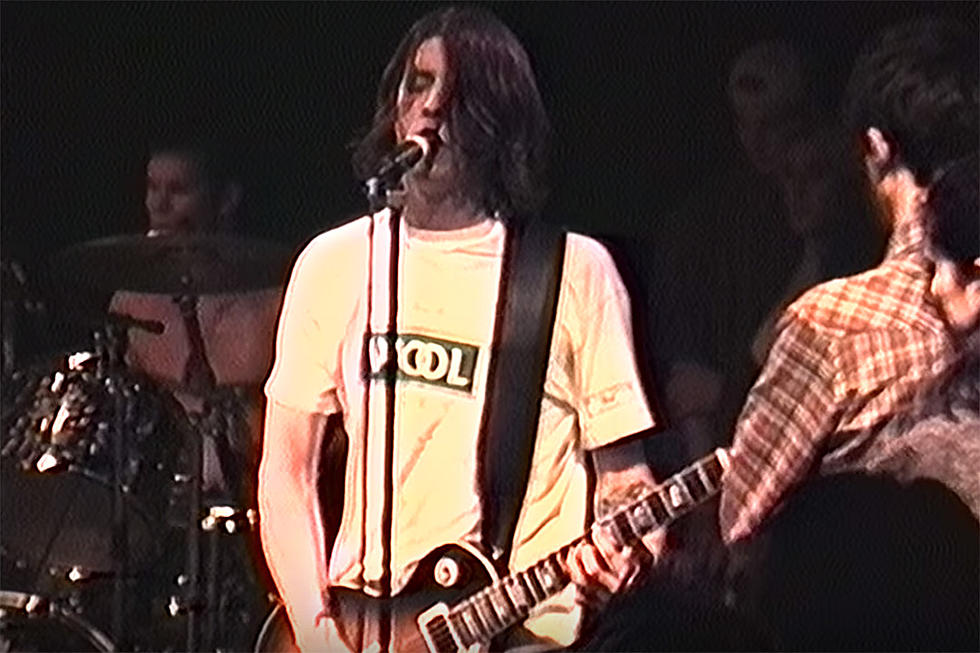
Album Review: Mumford and Sons, ‘Wilder Mind’
It was with a healthy amount of incredulity that I watched my college-age peers inharmoniously shouting, “I really f---ed up this time / Didn’t I, my dear?”, in broad daylight over toppled-over red Solo cups and sticky folding tables planted on a small neighborhood’s worth of front lawns in 2010. How did four British dudes armed with banjos pen the day-drinking anthem for a bunch of Ohio undergrads?
The song was “Little Lion Man” from Mumford and Sons’ debut, Sigh No More. The cerebral titles and contents of the songs themselves left me even more at a loss. The song could easily end up sandwiched between the likes of Train, Katy Perry and Bruno Mars on a iPod set to shuffle -- much more likely candidates for a day of youthful revelry at the time. It’s an image that stuck with me then and again when Mumford and Sons left the 2013 Grammys with the award for Album of the Year for their 2012 follow-up, Babel. And now it comes to mind once again with the arrival of the band’s third full-length, Wilder Mind.
Not taking into account other elements at play (like how swaths of pseudo-intellectual and self-obsessed millennials might be attracted to the kind-of-but-not-really remorseful lines like the ones above), Mumford and Sons’ steady rise culminating in the newly electrified arena-rock heard on their third long-player actually isn't that far-fetched a contender for winning the collegiate consciousness -- and the massive audience the Marcus Mumford-led foursome have amassed since then.
So when the former folk-rockers announced they would abandon their trusty banjos for electric guitars and U2-size aspirations on their latest effort, it didn’t seem -- for a lack of better words -- all that wild of a proposition. After two albums containing one emotional crescendo after another, it was clear these guys already played their acoustic instruments like they were U2. Though diehards fretted they were losing Mumford and Sons’ signature sound, the transition actually seems like a much more lateral move -- a progression, yes, but by no means unfathomable leaps and bounds.
Album opener “Tompkins Square Park” immediately sets the tone for the band’s new sound with a slow-build and Tom Petty-esque solo. But here, Mumford doesn’t have to shout the chorus for listeners to digest the song’s message of waning love.
If anything, Wilder Mind, is a slightly less indulgent iteration of Mumford and Sons. The tamped-down moodiness throughout forces listeners to wait for the catharsis they’ve come to expect from the four-piece, with songs like “Snake Eyes” harboring a distinctly National quality -- unsurprising considering Mumford and company demoed their new set at guitarist Aaron Dessner’s Brooklyn studios. Likewise, “Cold Arms” is perhaps the most disarmingly representative of the band’s newfound restraint, as Mumford steps out on his own with just a guitar and stretched-thin warble.
The unwavering, foot-stomping urgency, furiously plucked banjos and kick drums of old are traded in for spacious and cinematic electric guitar and synths and an eye toward strategic pacing -- a welcomed reprieve.
Nevertheless, catharsis arrives on songs like “Believe” and “The Wolf.” The former holds more in common with Coldplay than the London folk scene that bred Mumford and Sons, Laura Marling and Noah and the Whale. The latter delivers a climax with its grizzled refrain, “I want to learn to love in kind / ‘Cause you were all I ever longed for,” which has the promise to become an anthem for a new wave of college co-eds.
Wilder Mind also maintains the band’s knowingly wordy albeit clunky turns-of-phrase. “Broad-Shouldered Beasts” and its passive aggressive misdirection (“It’s all right / Take it out on me”) certainly doesn’t sound all that out of step with Sigh No More.
This is undoubtedly a different Mumford and Sons, but not one so far-removed from its beginnings that it’s unrecognizable. This is a band that’s always had inclinations toward music designed to fill enormous spaces. Wilder Mind simply equips them with the right tools for that endgame.
More From Diffuser.fm









